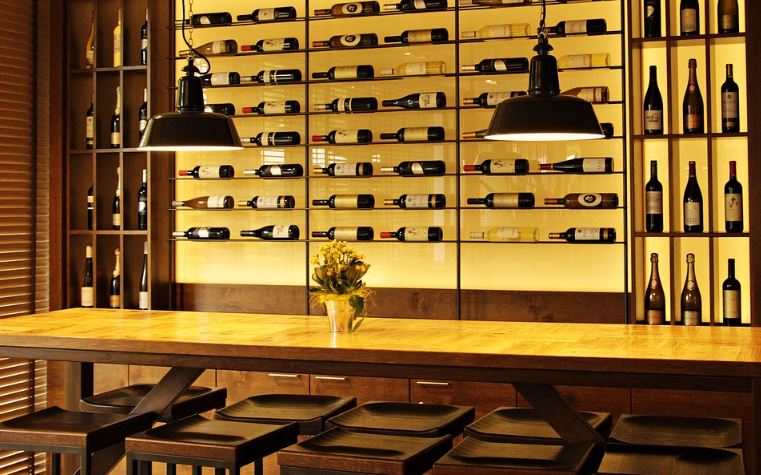 Starting a business in a wine region may be a romantic idea for many. However, it can be tough to stand out against other wine-related enterprises doing the same thing.
Starting a business in a wine region may be a romantic idea for many. However, it can be tough to stand out against other wine-related enterprises doing the same thing.
Still, part of the attraction in launching your own wine business is the extensive opportunity for startups. With that said, your wine company could be a retailer, bar, or vineyard.
For a little help, here’s how you can start your own wine company. So, take a read!
Create a Business Name
Before you build your winery or wine business, you should create a business entity and name first. You must ensure that the name you decide on for your wine company is unique and original, i.e., no other winery has the same name.
Remember that the business name you come up with may significantly affect your wine sales. Additionally, a good name can go a long way toward enhancing your brand and brand image. Your brand represents your company’s image and personality. It tells consumers what you stand for and what they should expect from you.
 Business Plan
Business Plan
After giving your company a name, you must then create an effective business plan. Make sure you research your sector well, including potential rivals, prices, and consumer characteristics. You could take a Van in Black winery tour and ask a lot of questions to develop a taste for the business while socializing with people in the business.
Include a market analysis, a summary of the business, specifics on the product, a company overview, financial projections, and your goals and objectives.
Your goal is where you want to be at a specific date in the future, while your objective is how you plan to get there. In other words, your goal is your destination while your objective is the description of your journey.
Pick A Location
Wine retailers and wine bars must be located in areas with a lot of foot traffic such as busy shopping areas or next to major train stations. Such locations are great for drop-in customers.
On the other hand, if you are opening a vineyard, search for land best suited for cultivating grapes in terms of area and soil quality terms of area and soil quality just like in Mudgee Wineries. Make sure it is easy and feasible to get rid of the current vegetation on that land. Additionally, you need to build wine cellars, tasting rooms, etc.
Get Permits
Aside from typical business licenses, liability insurance, and tax identification details, you will have to apply for certain permits regarding the production and sale of alcoholic beverages. You will also need to pay excise duty (taxes).
You can check with the Tobacco Tax and Trade Bureau, and Federal Alcohol for more information on rules and regulations. Moreover, don’t forget to check the alcohol beverage commission of your state for licensing requirements.
 Buy the Required Equipment
Buy the Required Equipment
Lease or purchase vehicles for transporting wine crates and grapes. These items of equipment are crucial for any startup vineyard. You will also require tanks for storing and maturing your wines.
A forklift truck is necessary to pick up, stack, and move barrels and vats. Your office will need a computer, telephone, Wi-Fi, desk, etc.
Create a Budget
Once you know what equipment you need to buy, the location, you have a business plan and obtained the permits you need, you can now create a budget with all of these expenses in mind. Some of these items can be quite expensive.
Do not mix your personal and business incomes and expenses. Keep both separate by opening a business account at your bank. Tell your account manager what you plan to do.
Network With Prospective Customers
Wine retailers and bars can easily network with wedding and event planners, restaurants, catering companies, and businesses to boost clientele. Prospective customers for wine vineyard companies include supermarkets, fruit stands, and gourmet food markets.
 Market to Potential and Current Clients
Market to Potential and Current Clients
Wine retailers and bars can market to current and potential clients by offering extra services such as weekly wine tasting evenings, free wine deliveries, and phone-in or online orders. Preparing a wine tasting event? Learn about sampling and tasting in the DIY Fall Wine Tasting Guide from SECCO Wine Club.
As you accumulate experience in your business, note down interesting stories that you can tell clients about your wines.
Other Things to Note
If you own a vineyard, consider selling grapes to other winemakers. It could be an effective way of boosting your income.
There are some winemakers out there who do not want to get into the time, effort, and money required to start up their own vineyards. Companies like Sokolin, based in Bridgehampton, New York, USA, purchase wine-ready grapes and also wines.
Most wine merchants, particularly those who are new to the business, cannot generate enough money on their own. So, they will need to consider some business finance options such as a family loan, equity financing with a venture capitalist, or a bank loan.
Takeaway
In the world of business today, every entrepreneur’s aim is to increase sales. Accommodating the demands, preferences, and requirements of your clients is crucial. Additionally, keeping up with industry trends, consumer spending habits, changing tastes, and new technologies are also important.
These are some of the key factors to bear in mind when you set up a successful winery. All in all, remember that wine businesses are time-consuming, niche-intensive, and require highly specialized skills.
Whether you are an entrepreneur, wine expert, or both, remember that you will never become successful if you venture off on your own. Setting up and making a wine business thrive requires teamwork, equity, hard work, and money; sometimes much more than you had anticipated.
Do not expect a rapid ROI (return on investment). In this industry, ROI takes time.
Interesting related articles:

